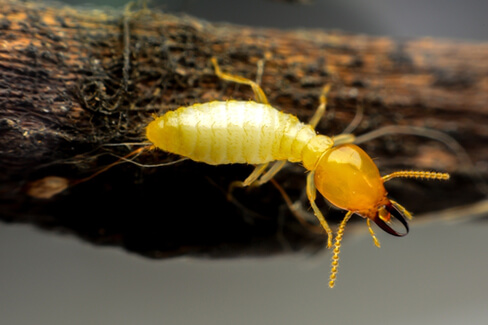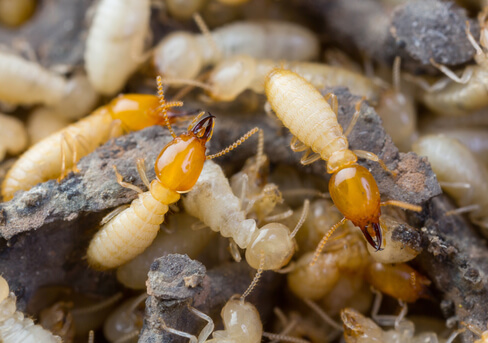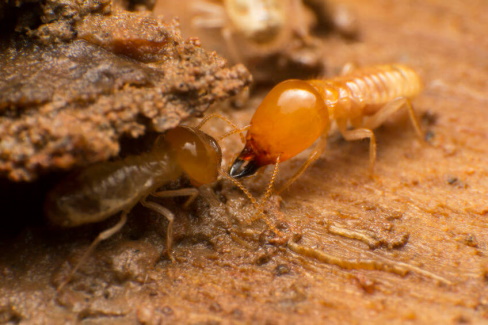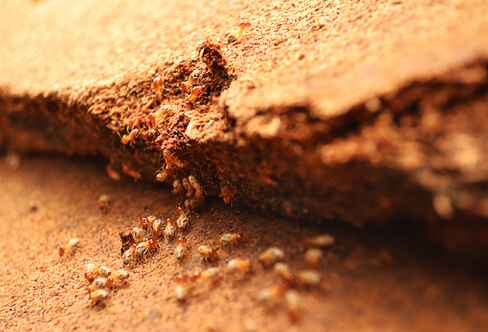

600,000 US homes per year are damaged by termites. $5 billion annually is spent on termite extermination and home repair. Control and eliminate your termite situation before repair costs become unmanageable.
Termite damage is one of the worst things that can happen to your home. Families across the country find their homes slowly eaten inside out and ravaged by termite swarms that they didn’t even know were there.

In many cases, termites can be nipping and gnawing at the structural integrity of your home for years without being discovered. But at this point it might already be too late: your repair bills will be through the roof.
New Jersey homeowners have to watch out, as termites are fairly widespread and active throughout the state. New Jersey is categorized as a Level 2 Termite Infestation Probability Zone, meaning there is moderate to heavy termite pest presence with the likeliness to cause significant home damage.
Keep your home safe, keep your family pest free, and keep your repair bills to a minimum. Whether you see signs of termite damage or you just want to sleep with peace of mind away from the thought of the pest, it’s time to call PermaKill Exterminating and let us do our termite pest control work.
Termites are winged insects, a type of tiny social cockroach that feed on decaying or dead plant matter and wood. The wood that homes are built of are an easy target for termites, as they can feast in the same place for years without being bothered.
At just 1/8th of an inch, a single termite can take over 3000 years to eat through an average-sized home. However, termites live in colonies, and an entire colony can turn the walls in a house hollow in just a few years.

So how do they get into homes? This kind of pest generally crawls into a home from the ground up, breaking in through the soil, where the house foundation meets the ground. The pest swarm then creates tubes in the walls of a house out of their own saliva and dirt, and slowly edge their way in. Winged termites simply just fly into the house and start roaming for the best place to build their colony.
Once settled in a home, termites crawl through the walls, scraping and nipping at the wood. While they typically stay inside the walls, they can also be found in furniture, in attics, and any other wooden object in the home.
In nature, termites are incredibly useful, as they break down wood – which other animals can’t eat – into forms that other living creatures can process. They do this with a collection of microbes and protists that live in their guts and assist with the fermentation and extraction process of the wood.

NJ homeowners should be aware that New Jersey is a Level 2 TIP Zone, meaning there is a moderate to heavy presence of termites in the state. However, NJ residents in the south of the state need to worry more than those in the north, as North Jersey has mostly clay rocky soil (not ideal for termite colonies), while South Jersey has sandy soil.
Termites found in New Jersey are typically subterranean termites, as drywood termites are not native to New Jersey (although they can be carried in with wood), and Formosan termites are generally found in warmer areas in southern states.
Swarming behaviors of termites in New Jersey are as follow:
As a homeowner, you will typically see one of two signs as your first encounter with termites in your home:
If you see these signs, it’s time to call a professional pest control team like PermaKill Exterminating right away.
The amount of time it takes termites to cause significant damage to your home depends on the number of colonies that exist in the home. A single subterranean termite colony can contain anywhere from 60,000 to 1 million termites; a 1-million large colony of termites can eat an estimate of a pound of wood per day. Over weeks, months, and years, those eaten pounds add up.
The areas in a home most susceptible to termites include the wooden slab foundation and crawlspaces between the walls, as these are the darkest and generally dampest parts of the home that are made up entirely of wood.

To keep your home safe from termites, it is essential that you inspect and follow-up any potential signs of a termite infestation that you might see. This means regularly inspecting the outside foundation of your home, your basement, attic, and any crawlspaces you might have.
If you notice any signs of termite presence and need to get it under control, call PermaKill Exterminating immediately for a professional pest control termite inspection, pest control service estimate and analysis.